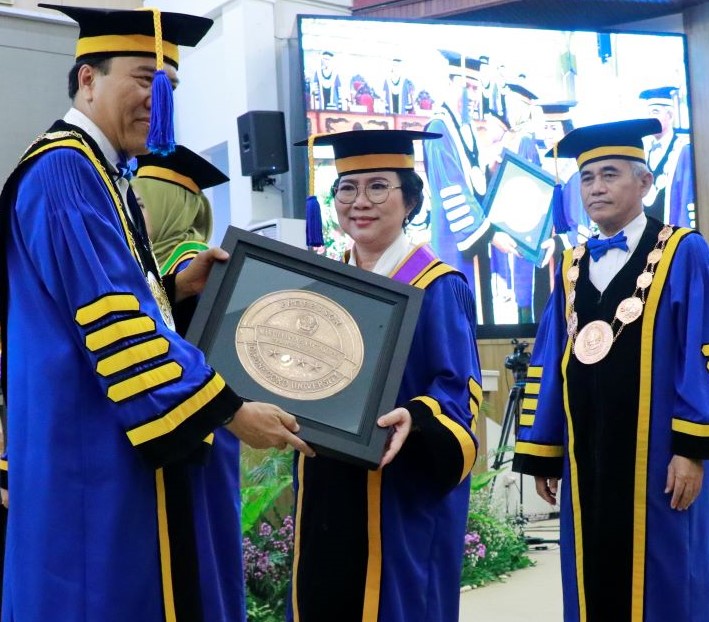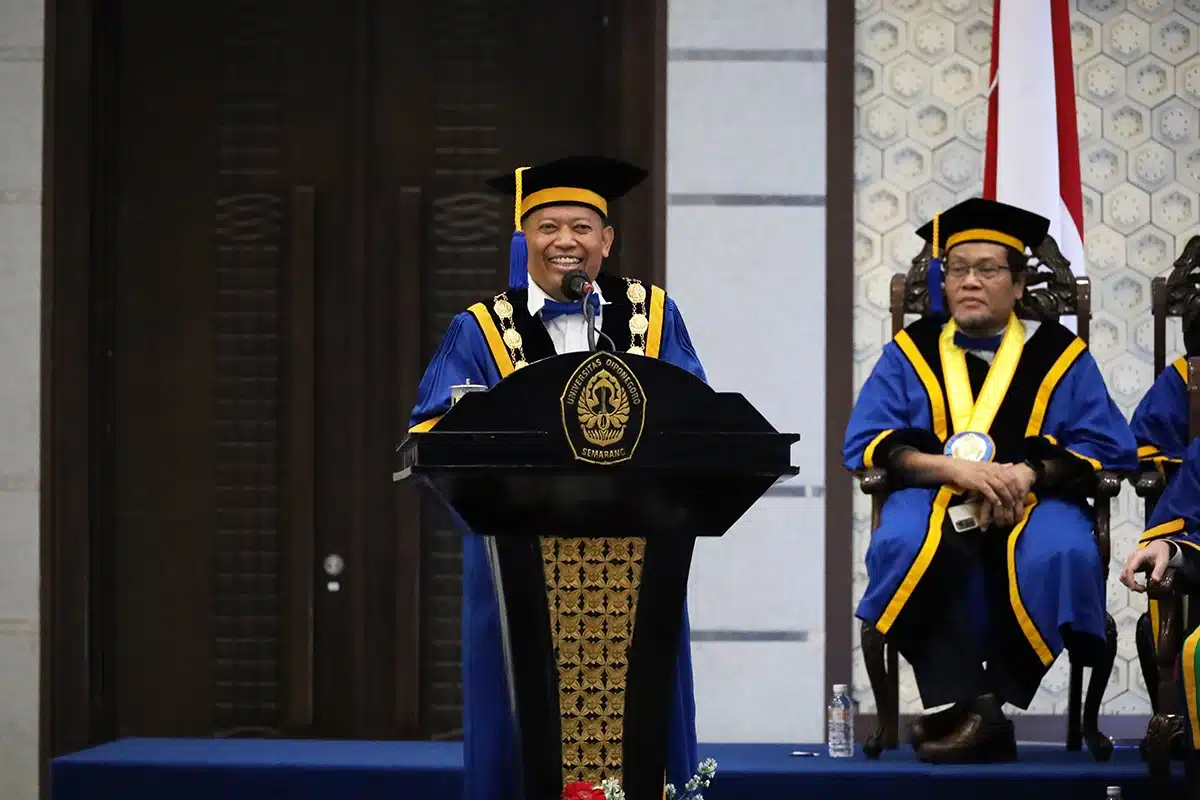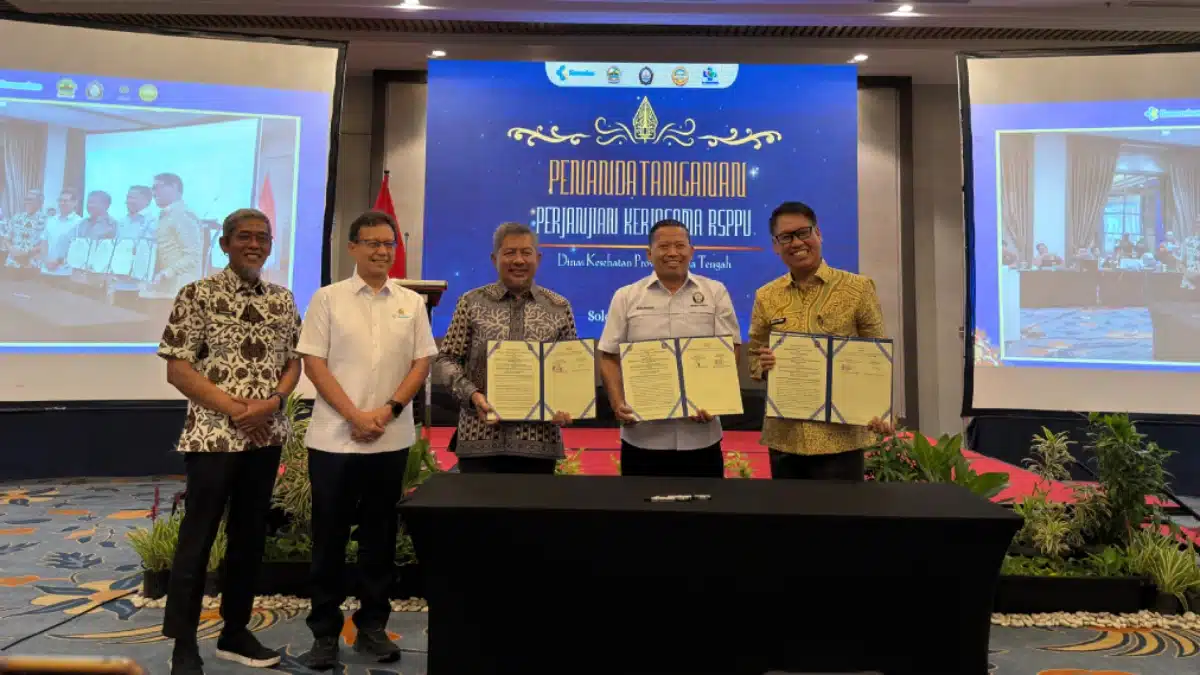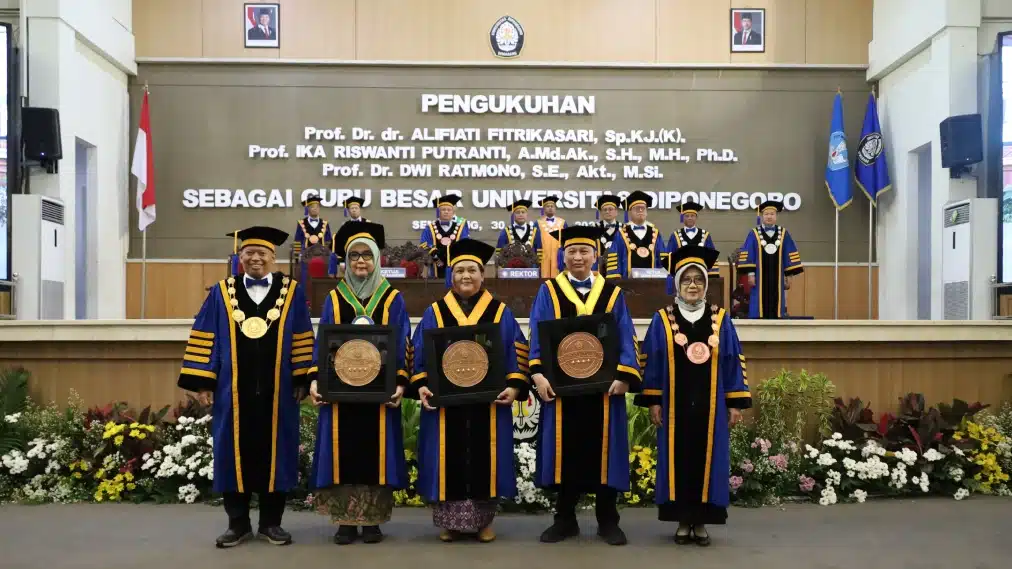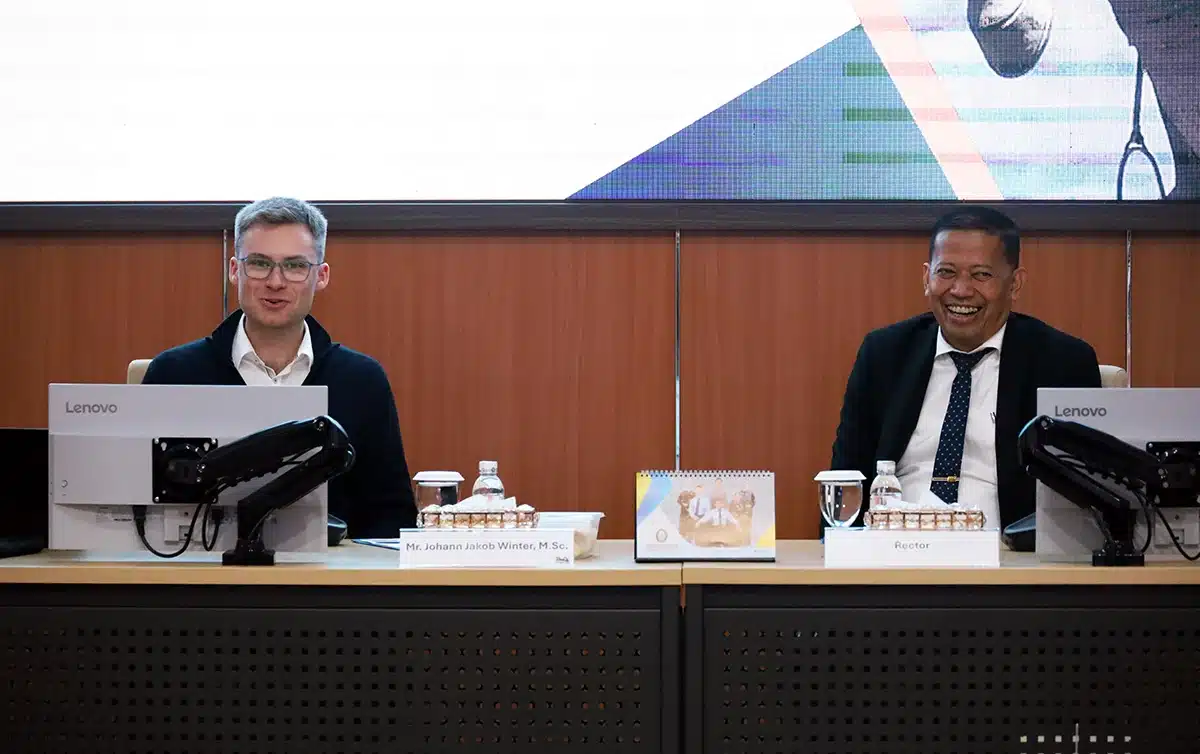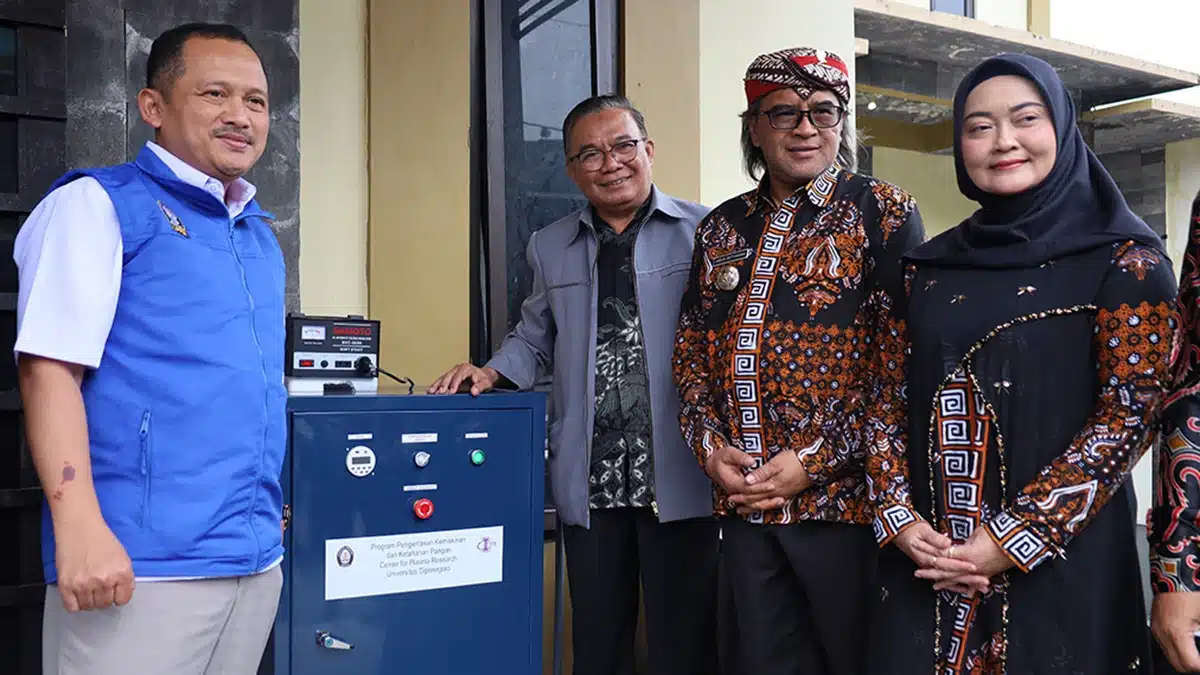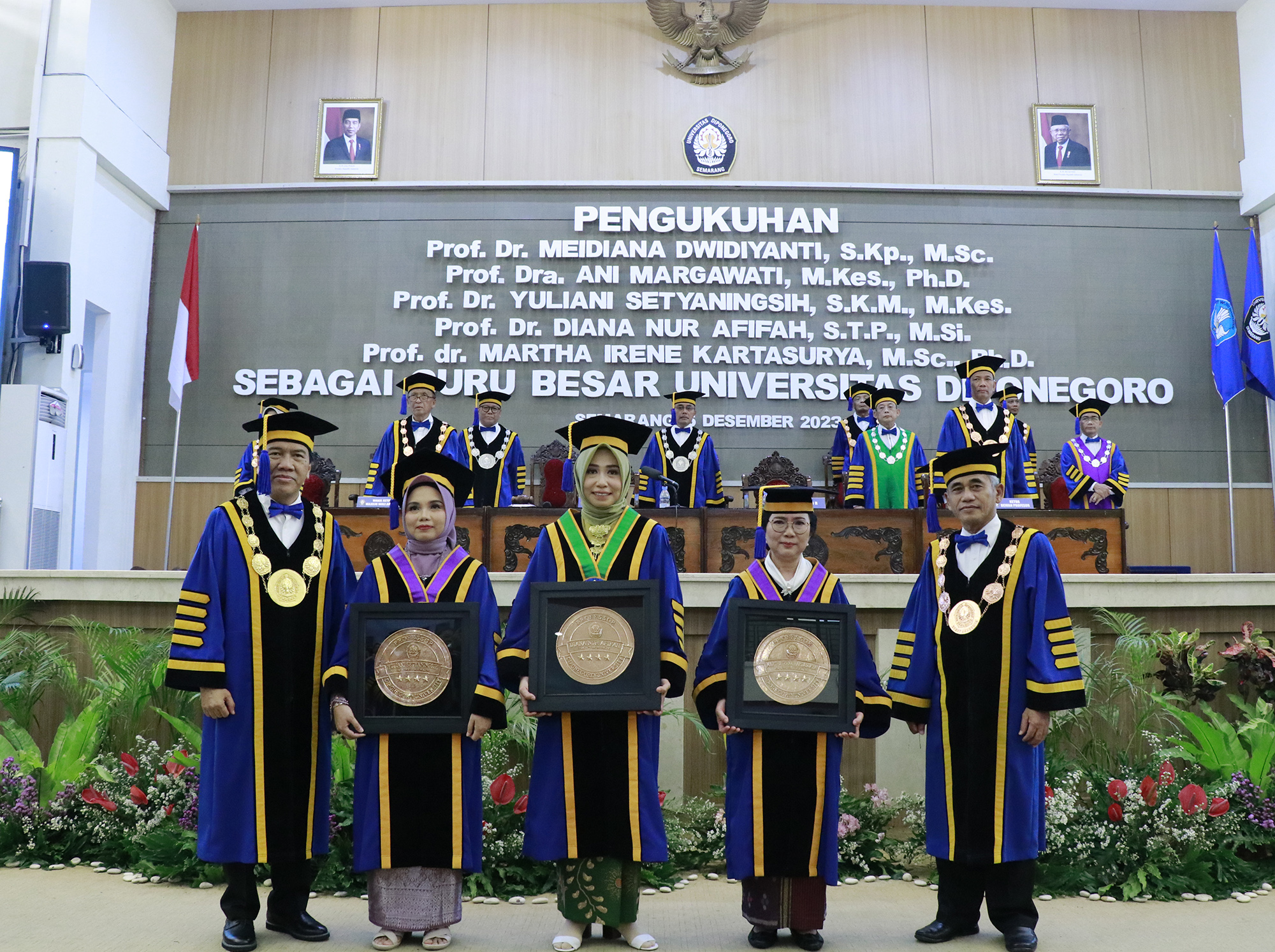Diponegoro University again confirmed three professors on Monday (5/12) at the Prof. Sudarto, S.H. Building, Tembalang. In the inauguration of the afternoon session, the three professors inaugurated were Prof. Dr. Yuliani Setyaningsih, S.K.M., M.Kes. (Faculty of Public Health), Prof. Dr. Diana Nur Afifah, S.T.P., M.Si. (Faculty of Medicine), and Prof. Dr. Martha Irene Kartasurya, M.Sc., Ph.D. (Faculty of Public Health).
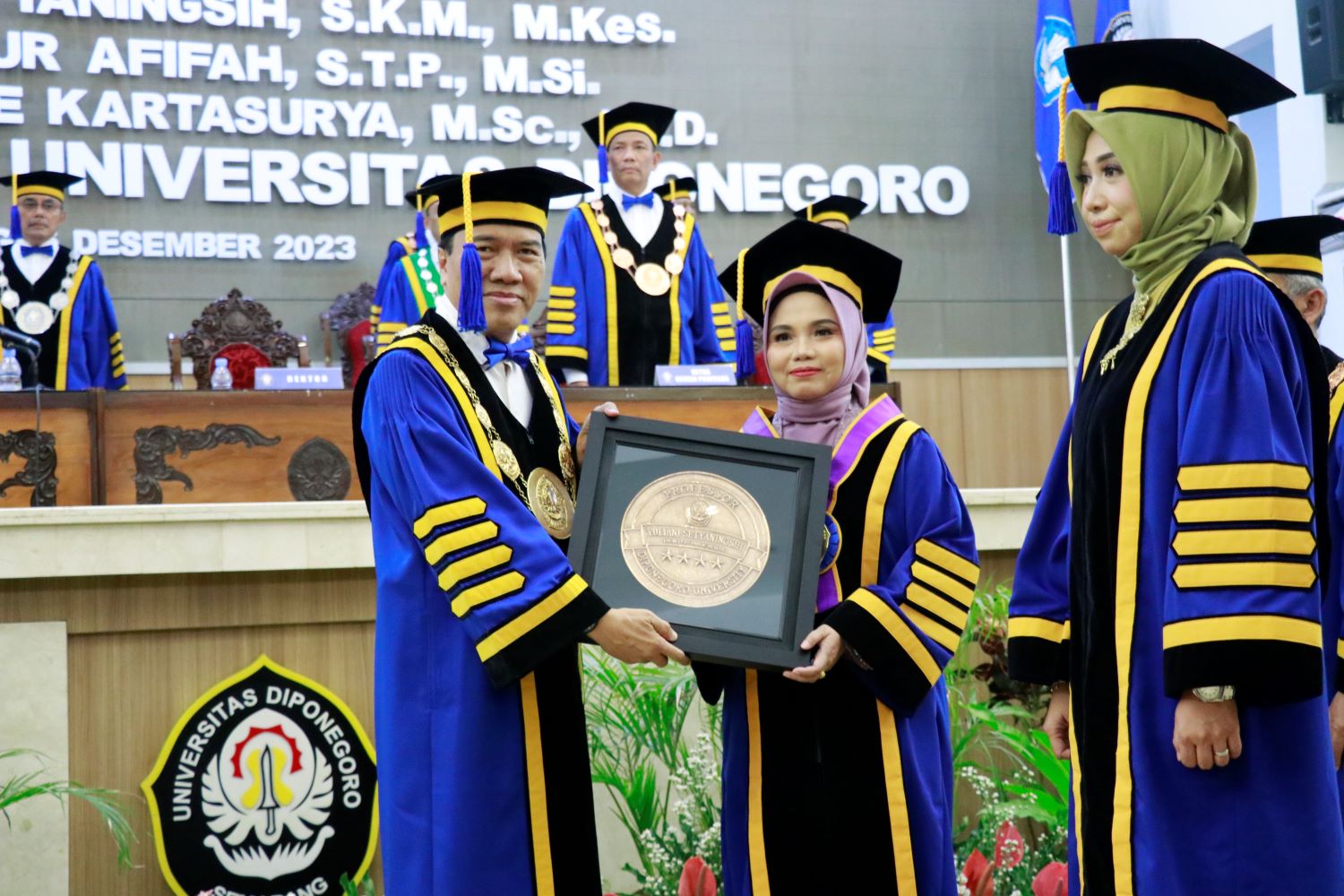
In her scientific speech regarding “Strategies for Improving the Safety Culture of Informal Sector Workers Through the Development of Integrated Occupational Health Effort Posts,” Prof. Yuliani said that occupational health science is a science that studies the harmony between work capacity, workload and work environment so that workers can work productively.
“One of the problem-solving concepts as an effort to implement occupational safety and health (K3) in the informal sector is to increase awareness and compliance with K3 norms, improve the work environment so as to create conducive work and increase the participation of the working community to implement a safety culture. A good K3 culture should be a reflection of the culture in the workplace. The existence of awareness of the implementation of K3 culture will influence work productivity,” she explained.
In her scientific work, Prof. Diana raised the title “Utilization of Tempeh Gembus and Other Processed Soybeans as a Source of Nutritional Intake for Sustainable Health Improvement.” She said that fermented local foods such as tempeh gembus contain bacteria that produce fibrinolytic enzymes, which can help prevent cardiovascular disease. Apart from that, nutrients such as protein, fiber and isoflavones can help improve the lipid profile of women with hyperlipidemia and obesity. Tempeh gembus also functions as an antioxidant and antimicrobial. “The use of local food from plant-based food sources as a source of nutritional intake is expected to improve the quality of health sustainably without endangering the environment in the future,” she added.
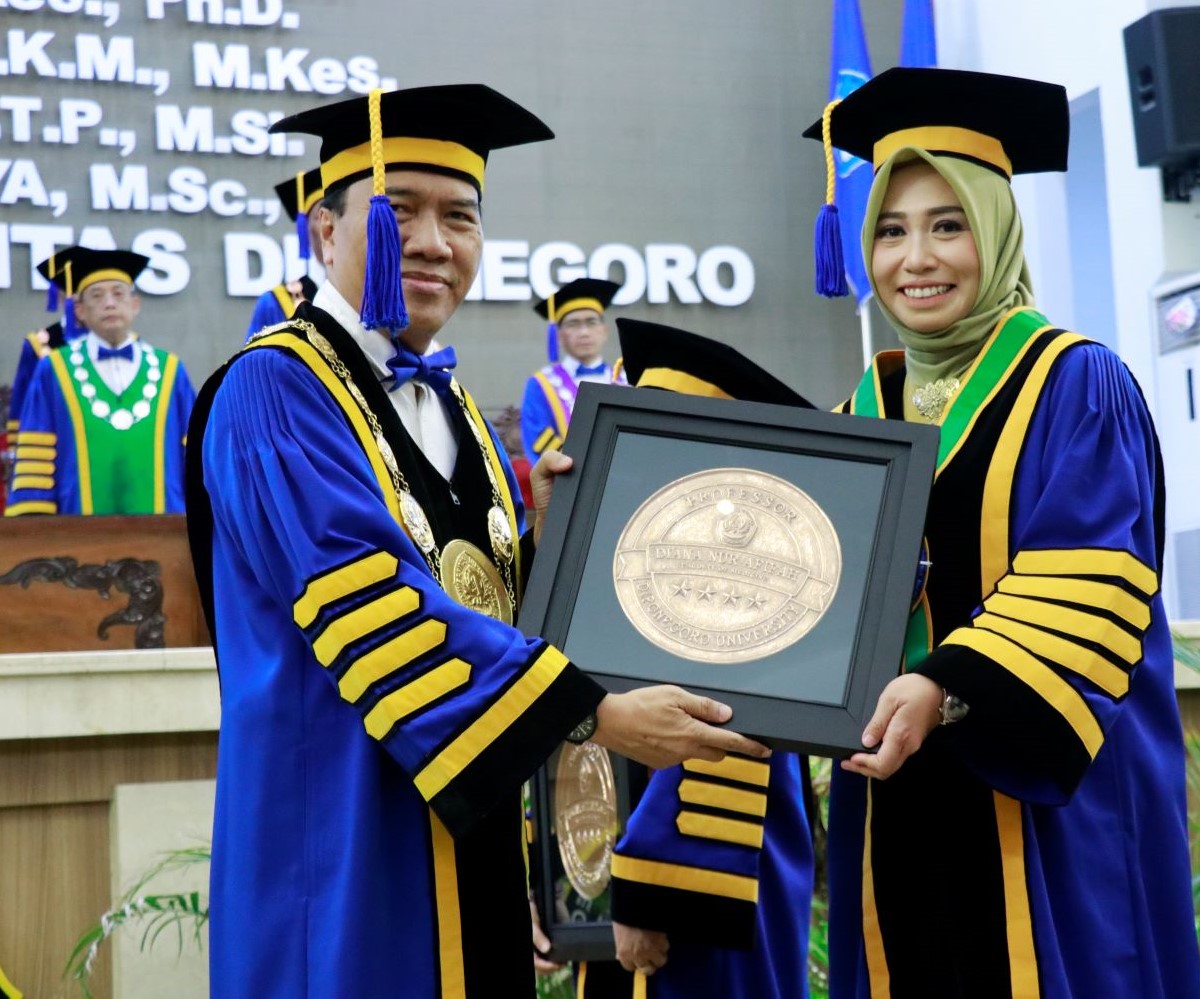
Furthermore, Prof. Martha delivered scientific material entitled “Early Prevention of Stunting Through Specific Interventions in Indonesia.” She said that stunting is a significant problem facing the Indonesian nation, so efforts to overcome it and even prevent it are needed so that the program becomes more effective and efficient. Stunting prevention must be carried out in accordance with the causal factors, which consist of direct, indirect, and primary causes. Specific interventions are efforts to overcome and prevent stunting in the health sector.
“The determination of specific intervention programs is carried out based on the problems causing stunting experienced by each region, nutritional problems experienced by each region, the availability of resources in each region and the socio-cultural conditions in each region. The implementation of specific intervention programs will be successful if it involves all elements in society and synergizes with sensitive intervention programs,” Prof. Mart concluded. (LW-Public Relations)
